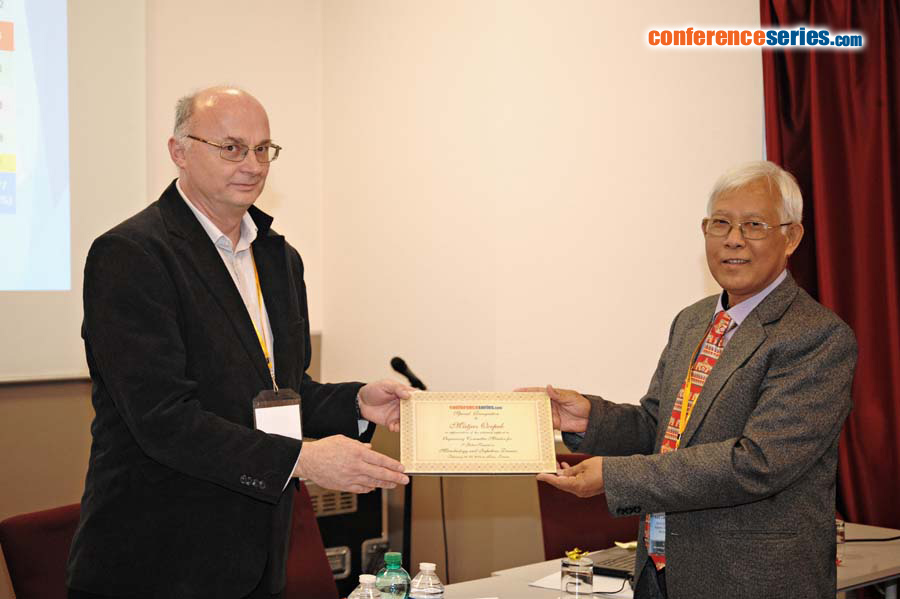Matjaz Ocepek
University of Ljubljana, Slovenia
Title: The influence of livestock on human infections with LA-MRSA
Biography
Biography: Matjaz Ocepek
Abstract
Infections caused by the methicillin resistant Staphylococcus aureus (MRSA) are traditionally nosocomial, but recent reports have indicated an increased frequency of community acquired infections. Livestock associated MRSA (LA-MRSA) is often present in domestic animals, especially in pigs. Although LA-MRSA strains usually do not cause the disease in animals, they could serve as potential source for human infections. In Slovenia, the number of people colonized with LA-MRSA is increasing. Both human and animal samples in addition to environmental samples were collected from 16 farms in Slovenia, where at least one case of LA-MRSA was previously confirmed per family. All the obtained isolates were tested for their anti-microbial susceptibility with the microdilution method for the minimal inhibitory concentration (MIC). In addition, they were confirmed by the multiplex PCR for 16S rRNA, nuc, mecA, mecC and PVL genes. Spa typing was also performed, using the Ridom StaphType software. All the human isolates of LA-MRSA were resistant to Cefoxitin, Tetracycline and Penicillin, some of them also to Ciprofloxacin and Clindamycin. In animals, similar susceptibility patterns were found, but none of the animal isolates were resistant to Ciprofloxacin. The human isolates mostly belonged to spa types t011 and t034, but t1451, t10765 and t1344 were also present. The evidence of LA-MRSA in animals was confirmed for five farms and all of those isolates belonged to the spa type t011. It can be assumed that pigs are a likely source of human infection, but it can also be concluded that LA-MRSA strains are already spreading within the human population. Namely, LA-MRSA was isolated from humans at farms, where both the animal samples and dust samples collected from the stables were negative.

